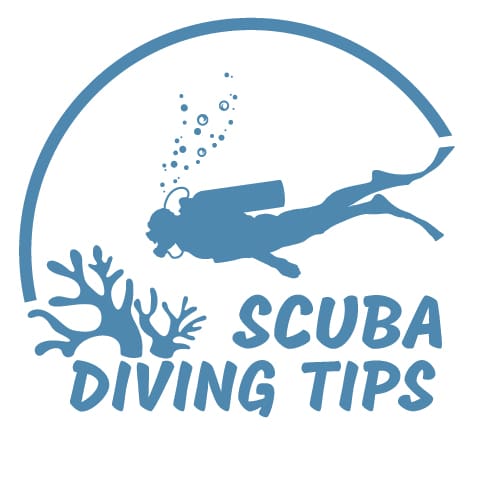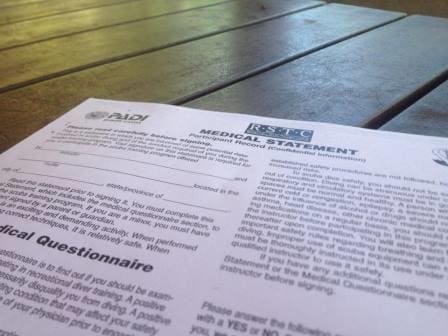You want to go scuba diving but where to start? First of all, you need to get a scuba diving certification. This allows you to rent scuba equipment and with this scuba diving certification, you will be able to join scuba diving trips with certified dive shops around the world.
You need a scuba diving license to be able to go underwater and enjoy all the beautiful marine life. Scuba diving is a dream that many people have, there are however some risks involved and for this reason, we should never dive without taking lessons and earning our scuba diving certification after completion.
Can you go scuba diving without a certification?
Technically you can go scuba diving without a certification, but that is not recommended and in most places not even allowed. Anyone can buy scuba diving equipment and just find water and dive. This is however very dangerous, you cannot be insured and no one should ever dive without a scuba diving license.
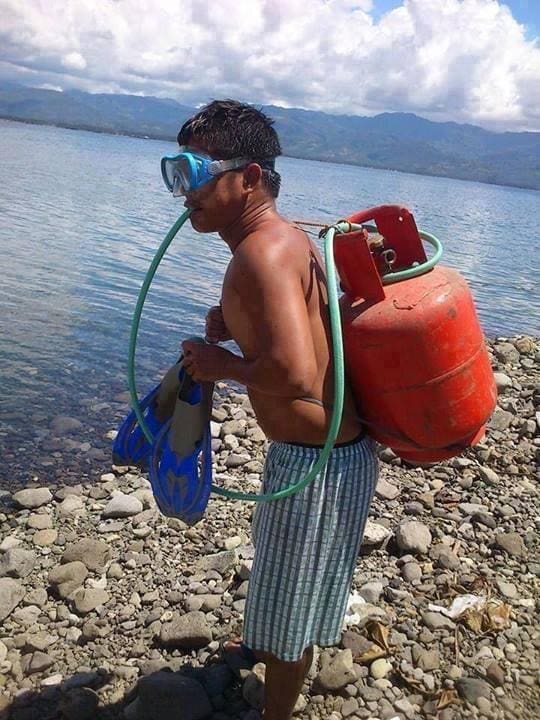
So, do you need a scuba diving certification? Yes, you do. During your scuba diving license course, you learn all the skills and knowledge to safely scuba dive up to the depth that you learned in your diving course. The more scuba courses you take to more diving possibilities and locations will open up for you.
What are the scuba diving certification requirements?
It depends on what dive training organization you choose, to know the scuba diving certification requirements. This is because every dive training organization has slightly different scuba diving certification requirements. Most requirements are the same between organizations, but there are some differences.
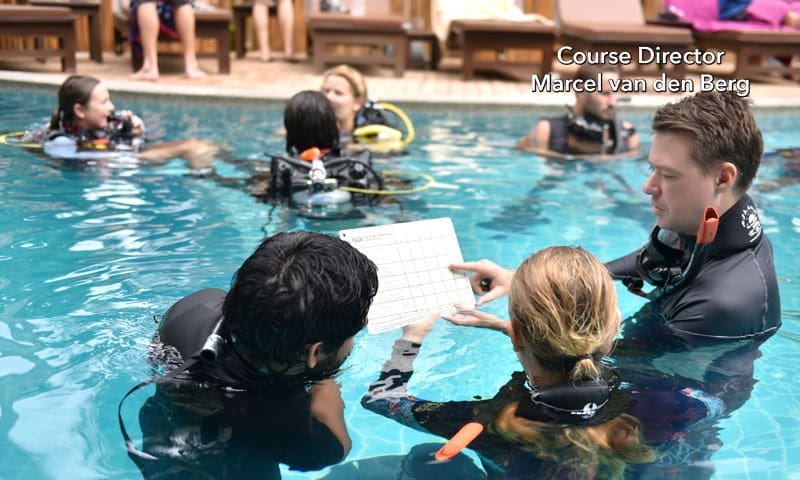
To give you one example with PADI you need to complete all the skill performance requirements within a certain dive to be able to go onto the next dive. While SSI is more flexible and you can move some skills from one dive to another. In the end, all dive training organizations will award you with a scuba diving license that allows you to dive around the world.
Which is the best scuba diving certification?
There is no right answer to the question of what diving certification is best, as all dive training organizations are safe if you follow their dive industry set standards. Choose a dive training organization that fits your learning style. Personally, I love the PADI philosophy of learning and did most of my scuba diving certifications with them.

You can also try different dive organizations depending on the course you take to see what fits you best. With a PADI Open Water Diver license, you can still scuba dive at an SSI shop and vice versa. You can also enroll in a PADI Advanced course after completing an SSI, RAID, or NAUI Open Water Diver course.
How to get scuba diving certification?
The first step to get your scuba diving certification is to choose a dive training organization. There are many to choose from, but the most popular organizations are PADI, SSI, RAID, NAUI, and CMAS.
After choosing the right dive organization you need to choose a dive shop where you can get your scuba diving license. Choose a location in the world where to go for your scuba diving certification and then Google some dive shops beforehand. I highly recommend you to check reviews on Tripadvisor, Facebook, or other platforms before booking as everyone can make a nice website these days.
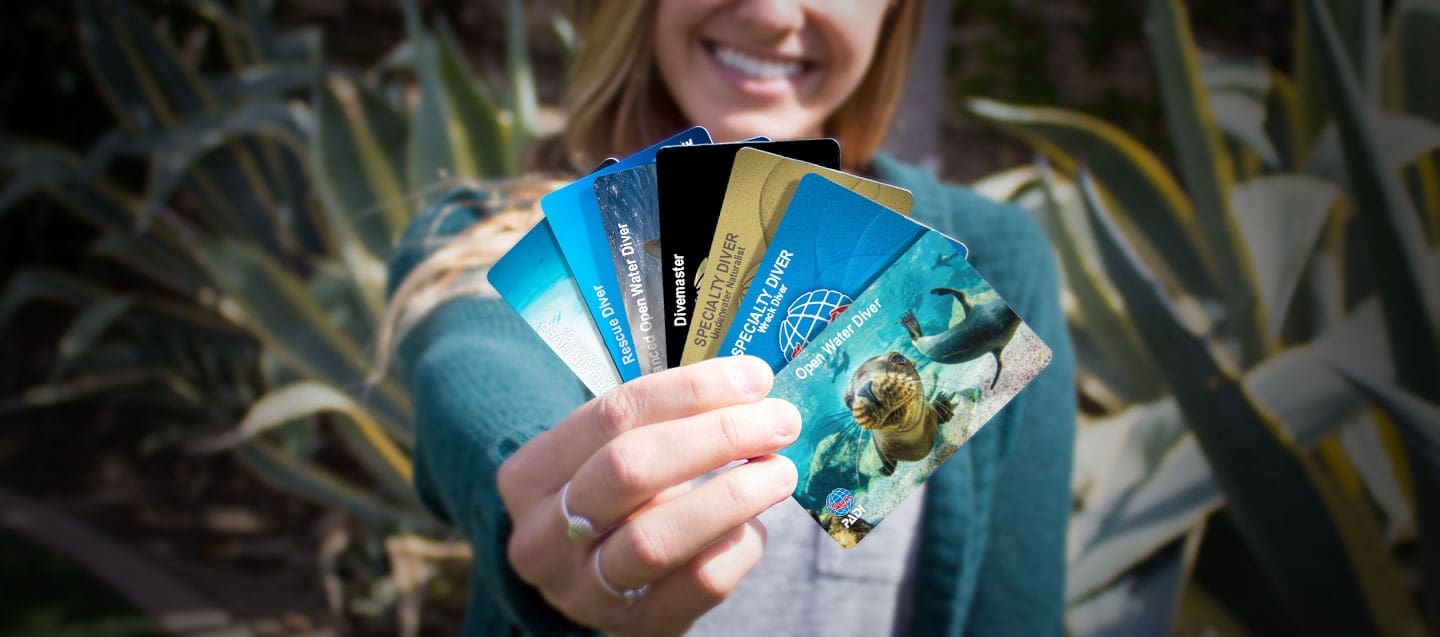
You can also choose to walk around when you get there and visit the different dive shops to make your choice. This way you can talk to your instructor and get a good feeling about the person. The teaching quality of scuba diving instructors can differ, so it is best to choose carefully.
How long does it take to become a certified scuba diver?
How long does it take to become a certified scuba diver depends a lot on the dive shop that you choose. A PADI Open Water Diver certificate in Thailand takes around 3 to 4 days, while the same course with the same scuba diving certification requirements can take 3 weeks or even longer in Europe.
This is not because of a quality difference, but more because people that get the scuba diving license in Europe usually work or go to school. They don’t have full days for the course and do it in small parts in the evenings and on days off. While people that visit Thailand are on holiday and do have full days to get the scuba diving license.
If you choose to get other scuba diving license levels the course duration changes again. For example in Thailand to become a certified scuba diver takes 3 to 4 days, the Advanced Open Water course takes 2 days, the Rescue Diver course takes 4 days, Divemaster takes 6 weeks and the PADI IDC Course takes 3 to 4 weeks.
How much does it cost to get a scuba diving certificate?
The scuba diving certification cost also differs depending on where you do your course to get a scuba diving certificate. The scuba diving license cost can be between 250 USD and 800 USD for the beginner certificate.
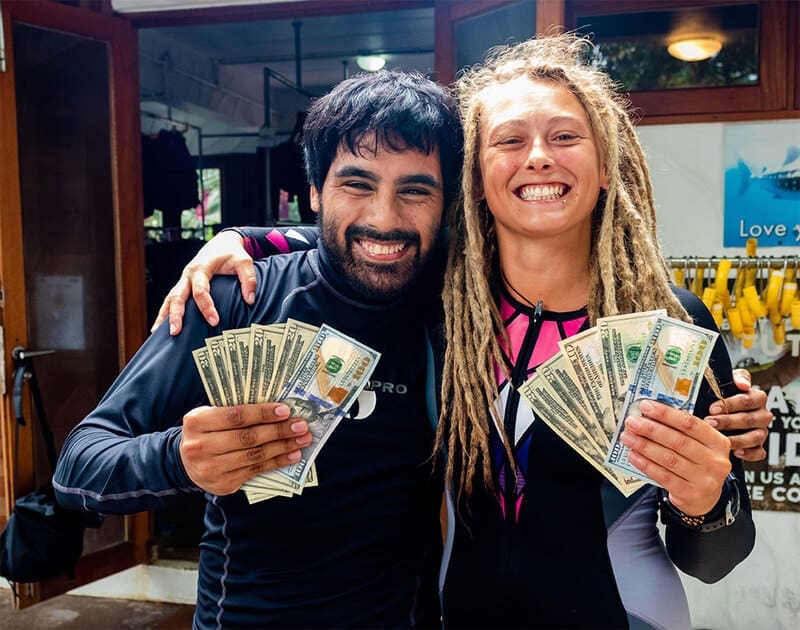
The reason why there is such a big difference between the scuba diving certification cost depends on different factors like the cost of organizing a diving course in a location, dive organization fees, a scuba diving instructor salary, course duration, etc.
The lowest scuba diving license cost can be found in Asia. I highly recommend checking out Sairee Cottage Diving on Koh Tao in Thailand as they offer some of the best quality while offering great deals.
Does a scuba diving certification expire?
It takes a bit of effort, time, and investment to complete your course, but after that, your scuba diving certification will never expire! Yes, you heard it correctly a scuba diving license is for life.
If you scuba dive regularly you will be constantly refreshing yourself. But we do recommend that if you haven’t dived for some time you should do a scuba diving refresher course before getting back into the water. It depends on your skills and comfort level how long you have to wait to do a scuba refresher, but the recommendation is 6 months after a period of no diving.
A dive instructor certification does expire if you don’t stay in teaching status. If you want to be 100% if your scuba diving license expires, then contact your dive training organization and they can give you the best advice.
What are the different types of scuba diving certifications?
The different types of scuba diving certifications also differ depending on the dive organization you choose. However, most have similar scuba diving certification requirements, just with a different name.
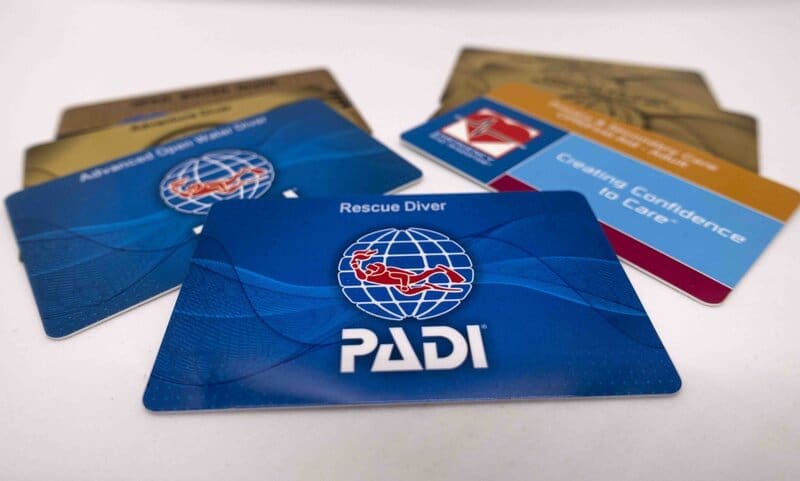
The most common types of scuba diving certifications are Open Water Diver, Advanced Open Water Diver, Rescue Diver, Divemaster, and OWSI Diving Instructor. Other different types of scuba diving certifications are diving specialty courses like Enriched Air Diver (Nitrox), Deep, Wreck, Navigation, Night, and so many more to choose from. Contact your dive shop and ask what different types of scuba diving certifications they offer.
How to prepare for scuba diving certification?
In most cases, you don’t have to prepare for your scuba diving license. You can just walk into a dive shop and start the course. If you do decide to prepare for scuba diving license then your course will only become easier and more comfortable.

How to prepare for scuba diving certification can be done in different ways. First of all, you can look into a scuba diving certification online. With most dive training organizations you can now book an online scuba diving course like for example the PADI eLearning courses. Now you can prepare all your dive theory online before you arrive and only have to focus on the fun part which is the in-water part of the course.
You can also prepare your scuba diving license by watching diving skills video’s on our YouTube channel and reading about the PADI Open Water Diver skills list. Please also check our link menu for the different parts of the scuba diving license you would like to get. One of the best ways to prepare for your scuba diving certification is to watch our PADI Open Water Diver Course video:
Conclusion
Getting your scuba diving certification is not hard, but it does take some time and investment. The reward, in the end, is priceless and after getting your scuba diving certification you can finally enjoy an amazing new world underwater.
Don’t wait any longer and contact your local dive shop for more information on how to get your scuba diving license. Enjoy your diving adventures!
Frequently Asked Questions About Scuba Diving Certification
What is scuba diving certification, and why is it important?
Scuba diving certification is a credential that verifies a diver’s training and proficiency in scuba diving. It ensures that divers have the necessary knowledge and skills to dive safely. Most dive shops and tour operators require proof of certification before allowing individuals to rent equipment or participate in dive excursions.
What are the main scuba diving certification agencies?
The primary certification agencies include:
- PADI (Professional Association of Diving Instructors): One of the most widely recognized scuba certification agencies globally.
- SSI (Scuba Schools International): Offers a range of scuba diving courses and certifications.
- NAUI (National Association of Underwater Instructors): A nonprofit organization providing scuba diving training and certification.
- CMAS (Confédération Mondiale des Activités Subaquatiques): An international diving organization offering a range of certifications.
All these agencies adhere to international standards, ensuring quality and safety in scuba diving training.
What are the prerequisites for obtaining a scuba diving certification?
To enroll in an entry-level scuba diving course, such as the Open Water Diver course, you typically need to:
- Be at least 10 years old (age requirements may vary by agency).
- Have basic swimming skills.
- Be in good physical health.
Some agencies may require a medical questionnaire or a doctor’s approval if certain health conditions are present.
What does the scuba diving certification process involve?
The certification process generally includes three main components:
- Knowledge Development: Learning the basic principles and safety guidelines of scuba diving through classroom sessions or online courses.
- Confined Water Dives: Practicing scuba skills in a controlled environment, such as a swimming pool.
- Open Water Dives: Applying learned skills in real diving conditions under the supervision of an instructor.
Upon successful completion, you’ll receive a certification card, often referred to as a “C-card.”
How long does it take to get scuba certified?
The duration varies depending on the course structure and individual progress. Typically, the Open Water Diver course can be completed in 3 to 4 days. Some programs offer flexible schedules, allowing students to complete the course over several weekends or through accelerated programs.
How much does scuba diving certification cost?
The cost of certification varies based on location, agency, and what’s included in the course. On average, expect to pay between $200 and $600. This fee usually covers instruction, course materials, equipment rental, and certification fees.
Is scuba diving certification valid worldwide?
Yes, certifications from recognized agencies like PADI, SSI, NAUI, and CMAS are accepted globally. This means you can dive at most locations worldwide by presenting your certification card.
Do scuba diving certifications expire?
Most scuba certifications do not expire. However, if you haven’t dived in an extended period, it’s recommended to take a refresher course to update your skills and knowledge.
Can I start scuba diving without certification?
While certification is required for independent diving, many dive shops offer introductory experiences, such as “Discover Scuba Diving” programs. These allow you to try scuba diving under direct supervision without prior certification.
What are the next steps after obtaining an Open Water Diver certification?
After becoming an Open Water Diver, you can:
- Pursue advanced certifications like Advanced Open Water Diver or Rescue Diver.
- Enroll in specialty courses (e.g., underwater photography, night diving, wreck diving).
- Gain more diving experience to enhance your skills and confidence.
